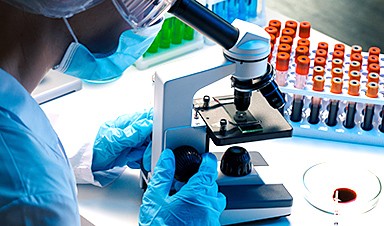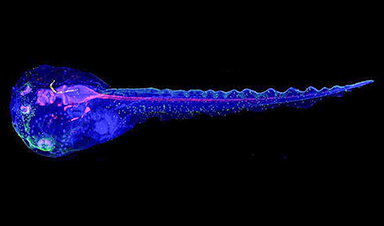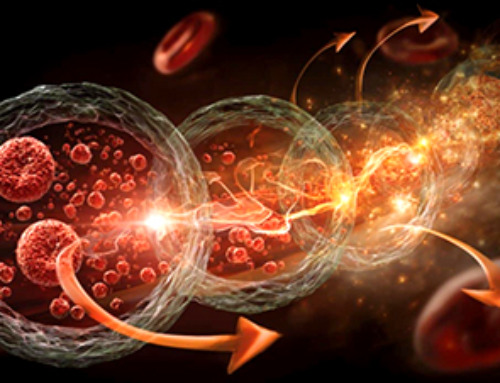A blood test for prostate cancer could spare thousands of men from unnecessary biopsies.
Experts say the breakthrough offers ‘great promise’ for detection of the disease, which is the most common cancer among men in the UK, affecting one in eight during their lifetime.
Men who visit their GP with symptoms receive a blood test called a PSA test, which can be inaccurate.
A new check was found to pick up 91 per cent of positive cases in 210 men with suspected prostate cancer.
It produced zero false positive results for men who do not have prostate cancer, so could spare thousands a painful biopsy or MRI scan which they may have been sent for based on a wrong PSA result.
The new liquid biopsy works by picking up tumour cells from prostate cancer in the blood.
A team including researchers from India and Imperial College London trialled it on men with signs of suspected cancer, like an enlarged prostate or urinary symptoms.
A third of these men were later found to have prostate cancer, while two-thirds had benign prostate conditions.
Among the 68 men with the cancer, the test was positive for 56 and gave a result which was less clear but unlikely to be negative for six of them.
It provided a negative result for all 142 men who did not have prostate cancer.
Simon Grieveson, of Prostate Cancer UK, said: ‘The detection of cancer cells in the blood has shown huge potential in recent years, and Prostate Cancer UK and Movember are jointly funding research into whether this could also help decide the best treatment for men with cancer still localised to the prostate.
‘These results show great promise and suggest that it may be possible to use this test to detect the cancer in the first place.’
The standard test used by the NHS looks for prostate-specific antigen – a type of protein from the prostate.
Last month a blood test combining the PSA check with one looking for changes in immune cells within the blood was found to be 93 per cent accurate for positive results when tested on 147 men.
Scientists are excited about a next generation of more accurate blood tests, which could perhaps be used to screen healthy men for early signs of cancer. The research was published in Cancer Medicine.
News
AI matches doctors in mapping lung tumors for radiation therapy
In radiation therapy, precision can save lives. Oncologists must carefully map the size and location of a tumor before delivering high-dose radiation to destroy cancer cells while sparing healthy tissue. But this process, called [...]
Scientists Finally “See” Key Protein That Controls Inflammation
Researchers used advanced microscopy to uncover important protein structures. For the first time, two important protein structures in the human body are being visualized, thanks in part to cutting-edge technology at the University of [...]
AI tool detects 9 types of dementia from a single brain scan
Mayo Clinic researchers have developed a new artificial intelligence (AI) tool that helps clinicians identify brain activity patterns linked to nine types of dementia, including Alzheimer's disease, using a single, widely available scan—a transformative [...]
Is plastic packaging putting more than just food on your plate?
New research reveals that common food packaging and utensils can shed microscopic plastics into our food, prompting urgent calls for stricter testing and updated regulations to protect public health. Beyond microplastics: The analysis intentionally [...]
Aging Spreads Through the Bloodstream
Summary: New research reveals that aging isn’t just a local cellular process—it can spread throughout the body via the bloodstream. A redox-sensitive protein called ReHMGB1, secreted by senescent cells, was found to trigger aging features [...]
AI and nanomedicine find rare biomarkers for prostrate cancer and atherosclerosis
Imagine a stadium packed with 75,000 fans, all wearing green and white jerseys—except one person in a solid green shirt. Finding that person would be tough. That's how hard it is for scientists to [...]
Are Pesticides Breeding the Next Pandemic? Experts Warn of Fungal Superbugs
Fungicides used in agriculture have been linked to an increase in resistance to antifungal drugs in both humans and animals. Fungal infections are on the rise, and two UC Davis infectious disease experts, Dr. George Thompson [...]
Scientists Crack the 500-Million-Year-Old Code That Controls Your Immune System
A collaborative team from Penn Medicine and Penn Engineering has uncovered the mathematical principles behind a 500-million-year-old protein network that determines whether foreign materials are recognized as friend or foe. How does your body [...]
Team discovers how tiny parts of cells stay organized, new insights for blocking cancer growth
A team of international researchers led by scientists at City of Hope provides the most thorough account yet of an elusive target for cancer treatment. Published in Science Advances, the study suggests a complex signaling [...]
Nanomaterials in Ophthalmology: A Review
Eye diseases are becoming more common. In 2020, over 250 million people had mild vision problems, and 295 million experienced moderate to severe ocular conditions. In response, researchers are turning to nanotechnology and nanomaterials—tools that are transforming [...]
Natural Plant Extract Removes up to 90% of Microplastics From Water
Researchers found that natural polymers derived from okra and fenugreek are highly effective at removing microplastics from water. The same sticky substances that make okra slimy and give fenugreek its gel-like texture could help [...]
Instant coffee may damage your eyes, genetic study finds
A new genetic study shows that just one extra cup of instant coffee a day could significantly increase your risk of developing dry AMD, shedding fresh light on how our daily beverage choices may [...]
Nanoneedle patch offers painless alternative to traditional cancer biopsies
A patch containing tens of millions of microscopic nanoneedles could soon replace traditional biopsies, scientists have found. The patch offers a painless and less invasive alternative for millions of patients worldwide who undergo biopsies [...]
Small antibodies provide broad protection against SARS coronaviruses
Scientists have discovered a unique class of small antibodies that are strongly protective against a wide range of SARS coronaviruses, including SARS-CoV-1 and numerous early and recent SARS-CoV-2 variants. The unique antibodies target an [...]
Controlling This One Molecule Could Halt Alzheimer’s in Its Tracks
New research identifies the immune molecule STING as a driver of brain damage in Alzheimer’s. A new approach to Alzheimer’s disease has led to an exciting discovery that could help stop the devastating cognitive decline [...]
Cyborg tadpoles are helping us learn how brain development starts
How does our brain, which is capable of generating complex thoughts, actions and even self-reflection, grow out of essentially nothing? An experiment in tadpoles, in which an electronic implant was incorporated into a precursor [...]





















